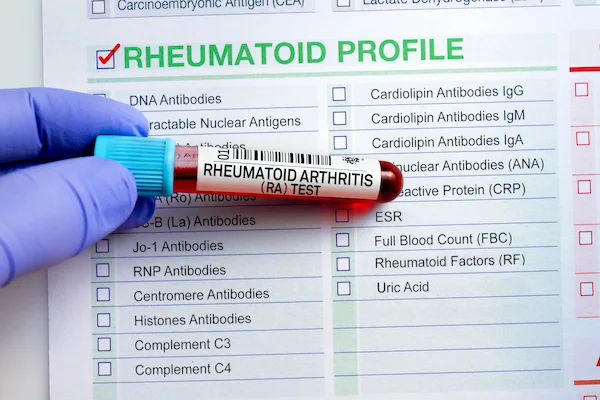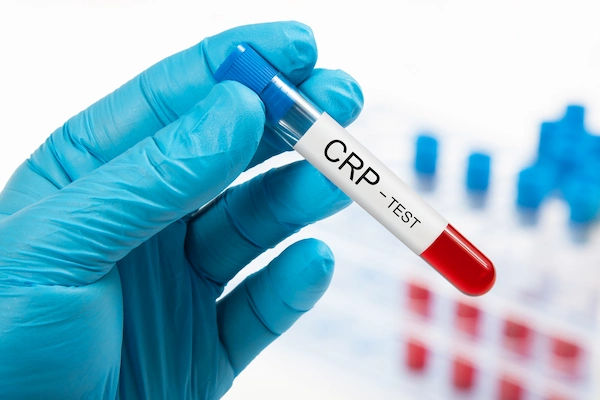Essential Tests For Smokers To Monitor Their Health
Smokers face higher health risks. Discover essential tests like lung function, chest X-rays, and heart screenings to detect early damage and stay on top of your health.

Written by Dr. Dhankecha Mayank Dineshbhai
Reviewed by Dr. Shaik Abdul Kalam MD (Physician)
Last updated on 9th Sep, 2025

If you are a smoker aged 25 and above, you are likely aware of the significant health risks associated with tobacco use. However, the impact of smoking on your body often extends beyond visible symptoms, silently increasing your susceptibility to a range of serious conditions, particularly affecting your lungs and cardiovascular system. While you might feel fine today, the cumulative effects of smoking can lead to chronic diseases that develop without early warning signs.
Ignoring these silent risks or delaying comprehensive health checks might prevent the early detection of conditions that are more easily managed when caught early. Fortunately, specific lab tests offer crucial insights into your body's inner workings. These tests can help your doctor monitor your lung function, screen for early signs of cancer, and identify other smoking-related health issues, guiding you toward a proactive plan for managing your health. This guide will explore the essential lab tests smokers should consider to monitor their health.
How Smoking Impacts Your Health?
Smoking introduces thousands of harmful chemicals into your body, affecting nearly every organ system. The primary impacts include:
- Lung Damage: Chemicals in smoke damage lung tissue, leading to chronic obstructive pulmonary disease (COPD), bronchitis, emphysema, and significantly increasing the risk of lung cancer.
- Cardiovascular Disease: Smoking damages blood vessels, leading to hardening of the arteries (atherosclerosis), increasing the risk of heart attacks, strokes, and peripheral artery disease.
- Cancer Risk: Beyond lung cancer, smoking is a major risk factor for cancers of the mouth, throat, oesophagus, bladder, kidney, pancreas, and more.
- Immune System Suppression: Smoking weakens your immune system, making you more vulnerable to infections.
- Other Effects: Impacts on skin, teeth, bone density, and overall vitality.
Many of these conditions develop silently over the years, meaning you might not experience obvious symptoms until they are advanced. This is why proactive testing is so important for smokers.
When to Consider Health Tests if You Are a Smoker?
If you are a smoker aged 25 or older, or have a history of smoking, regular health check-ups, including specific lab tests, are very important. You should especially consider getting tested if you experience any of the following:
- Persistent cough that does not go away
- Shortness of breath, especially during activities you used to handle easily
- Chest pain or discomfort
- Unexplained weight loss or fatigue
- Frequent respiratory infections
- Changes in your voice or difficulty swallowing
- Blood in your sputum (phlegm)
- A family history of lung cancer, heart disease, or other smoking-related illnesses
- A desire for proactive health monitoring, even without symptoms
Regular health screenings help your doctor understand how smoking may be affecting your body, detect early signs of disease, and create a personalised health plan. This plan can include strategies to support your well-being and help if you want to quit smoking.
How Often Should You Get Tested?
The frequency of these tests can vary based on your age, how long you've smoked, your overall health, and any existing risk factors. For many smokers, an annual checkup that includes a discussion of these specific tests is a good starting point. If you have existing conditions, a longer smoking history, or higher risks, your doctor might suggest more frequent testing. Always consult with your healthcare provider to determine the most appropriate testing schedule for you.
Key Lab Tests to Monitor Your Health as a Smoker
To proactively monitor your health as a smoker, specific blood tests and other assessments are crucial. These tests help your doctor monitor lung function and screen for early signs of cancer related to smoking, along with assessing overall health impacts.
Lung Function Tests (Spirometry & Blood Tests)
- Spirometry: While not a blood test, this is a primary test for lung function. It measures how much air you can breathe in and out, and how quickly.
Why it's important: Spirometry helps diagnose and monitor lung conditions like COPD (chronic obstructive pulmonary disease), which includes emphysema and chronic bronchitis, common in smokers. - Blood Tests for Lung Enzyme Markers (e.g., Alpha-1 Antitrypsin): In some cases, specific blood tests may be done to look for genetic conditions (like Alpha-1 Antitrypsin Deficiency) that increase the risk of lung disease, especially when combined with smoking.
Why it's important: While less common, identifying such deficiencies can influence management.
Get These Tests If You're A Frequent Smoker
Cancer Markers (Tumour Markers)
What they measure: These are substances, often proteins, produced by cancer cells or by the body in response to cancer.
Book Apollo Cancer Checkup For Male Here
Common markers include:
- CEA (Carcinoembryonic Antigen): Can be elevated in various cancers, including lung, colorectal, and breast cancer.
- CYFRA 21-1: A marker often used in lung cancer (non-small cell lung cancer) monitoring.
- NSE (Neuron-Specific Enolase): Can be elevated in small cell lung cancer.
Why they're important: While not definitive for diagnosis (as they can be elevated for non-cancerous reasons), elevated tumour markers in a smoker can indicate a need for further investigation and imaging to screen for early signs of cancer. They are often used for monitoring known cancers or assessing recurrence.
Book Apollo Cancer Checkup For Female Here
Complete Blood Count (CBC)
What it measures: A CBC provides detailed information about your red blood cells, white blood cells, and platelets.
Why it's important: Smoking can affect blood cell production. A CBC can reveal:
- Polycythemia: An increase in red blood cells, which can make blood thicker and increase stroke risk.
- Anaemia: Though less common directly from smoking, it can still be present due to other factors.
- White Blood Cell Count: Can be elevated in smokers, indicating chronic inflammation or infection.
Lipid Profile (Cholesterol & Triglycerides)
- What it measures: This blood test measures different types of fats in your blood.
- Why it's important: Smoking significantly increases the risk of unhealthy cholesterol levels and heart disease. Monitoring your lipid profile is vital for assessing cardiovascular risk.
Blood Glucose Tests (Fasting Glucose, HbA1c)
- What they measure: These tests assess your blood sugar levels.
- Why they're important: Smokers have an increased risk of developing Type 2 diabetes. Monitoring blood sugar helps detect this early.
C-Reactive Protein (CRP)
- What it measures: A marker of inflammation in your body.
- Why it's important: Smoking causes chronic inflammation throughout the body. Elevated CRP can indicate this ongoing inflammation, which contributes to cardiovascular disease and other health issues.
The results from these essential lab tests, combined with your symptoms, medical history, and a thorough physical examination, will help your doctor accurately assess the impact of smoking on your current health and identify any potential risks. This detailed understanding allows them to create a personalised health plan designed to help you manage these risks and improve your overall well-being.
Get Tested Easily with Apollo 24|7
If your doctor recommends essential lab tests to monitor your health as a smoker, choosing a reliable and convenient testing service is important. Apollo 24|7 makes this simple by providing accurate lab tests with quick results. This helps you and your doctor understand your body's current health status and create a personalised plan to manage your well-being effectively.
Why Choose Apollo 24|7 for Your Health Checkups?
- Comprehensive Test Panels: Apollo 24|7 provides access to a range of essential lab tests designed specifically for smokers, helping assess the impact of smoking on overall health. These comprehensive test panels may include blood tests, lung enzyme evaluations, and cancer marker screenings to detect early signs of lung damage.
- NABL-Accredited Labs: Tests are done in labs certified by the National Accreditation Board for Testing and Calibration Laboratories (NABL), ensuring accurate and trustworthy results.
- Home Sample Collection: Enjoy the convenience of blood sample collection at your home, saving you time and providing privacy.
- Easy Online Booking: Schedule your test quickly and easily through the Apollo 24|7 app or website.
- Fast Digital Reports: Receive secure, detailed test reports online promptly, ready to share with your doctor.
- Trusted Brand: Benefit from the trusted expertise and healthcare legacy of Apollo Hospitals Group, one of India’s most respected medical networks.
By choosing Apollo 24|7, you gain access to dependable and convenient diagnostic services that help you understand and manage your health more effectively.
For the most accurate and current pricing for relevant tests, check the Apollo 24|7 website, mobile app, or contact their customer support team directly. Pricing may vary based on your location, available offers, or membership benefits.
Conclusion
For smokers, proactive health monitoring through essential lab tests is not just a recommendation; it's a critical step towards understanding and mitigating the significant health risks associated with tobacco use. Ignoring these risks can lead to the silent progression of serious diseases.
By considering tests for lung function, cancer markers, and other key health indicators, you empower your doctor to identify potential issues early. This allows for timely interventions, personalised health strategies, and supports any efforts to quit smoking. Taking charge of your health now means investing in a future with potentially fewer complications and a better quality of life. If you are a smoker, consult your doctor to discuss which of these essential tests are right for you, and take the proactive step towards a healthier tomorrow.



.webp)


.webp)